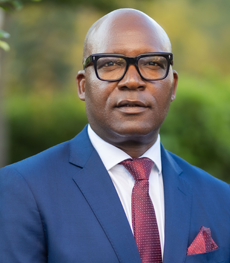News
 Good afternoon,
Good afternoon,
Ms Rawa Zoghbi, Permanent Mission of Lebanon to the United Nations (UN) and Chair, Committee for the United Nations Population Award Dr Natalia Kanem, Executive Director, UNFPA and Secretary, Committee for the United Nations Population Award. Her Excellency, Mrs. Angeline Ndayubaha-Ndayishimiye, First Lady, Republic of Burundi.
Mr. Earle Courtenay Rattray, Chef de Cabinet, Executive Office of the Secretary-General
Ms. Elizabeth Lule, Chair, AFIDEP Board of Directors
Ladies and Gentlemen.
It is with great honour and immense gratitude that I accept the 2023 UN Population Award in the institution category on behalf of the African Institute for Development Policy, AFIDEP.
AFIDEP is a regional research and policy institute that seeks to transform lives by bridging the gaps between research, policy, and practice.
This UN Population Award recognition reflects our team’s tireless dedication and commitment to advancing evidence-informed solutions to population, sexual, and reproductive health challenges across Africa.
I sincerely thank the United Nations and the UN Population Award Committee for recognising our efforts.
Thirteen years ago, in a garage in Lower Kabete in Nairobi City, the dream to establish AFIDEP was hatched. AFIDEP’s birth, and the uncertainty about its future that loomed large in that garage, resembles the insecurities many newborns in Africa and other developing regions face.
Just as it takes a village to raise a child, it took the collective efforts of many to get AFIDEP to this podium.
Through the founding Directors’ vision, the Board of Directors’ strategic leadership, hardworking staff, financial resource partners, partnership with UNFPA, other UN agencies and non-governmental organisations, supportive policymakers, and the unwavering backing from our families, AFIDEP has triumphed over many start-ups challenges.
Honourable chair, the African population is undergoing phenomenal changes. There are 1.4 billion people on the continent. The UN projects that by 2050, the population of Africa will be 2.5 billion, representing 25% of the global population. Of these, 41% will be under 20, 53% in the working ages 20-64, and 60% will live in urban areas. It will take people-centered strategic planning and smart investments to turn Africa’s youthful population into quality human capital to propel development in Africa and fill labour force gaps in other continents.
Our support of the African Union contributed to the landmark decision to designate “harnessing the demographic dividend through investments in youth” as the development theme for Africa in 2017. Twelve of the 23 governments we supported in East and Southern Africa have integrated the demographic dividend framework into their development strategies.
We are also proud of our work in galvanising parliamentarians at national and regional levels to champion the ICPD agenda and advocate for increased budget allocation to the health sector.
It is heart-warming to see the fruits of many actors in deploying evidence-informed advocacy to improve political will, the enabling policy environment, financial resources, and service delivery in the reproductive health ecosystem.
For example, nine of the ten countries that experienced the most rapid increase in the use of family planning among married women between 2010 and 2020 are from sub-Saharan Africa.
As we celebrate these achievements, we acknowledge that progress is uneven, and most countries are likely to fall short of their human development SDGs by 2030.
Many adolescents, including thirteen-year-old girls born the same year as AFIDEP, face uncertain futures. Most will not attain secondary education or vocational training to thrive and be productive citizens. Many teenage girls are at a heightened risk of becoming mothers and wives.
We, therefore, call on UN Member states to ensure that boys and girls stay in school, at least up to the secondary level. We must eliminate all legal and health service delivery bottlenecks and cultural practices that normalise the marginalisation of women and girls.
Governments should increase domestic financing to counter the effects of debt burden, COVID-19, climate change, and local and global conflicts.
UN member states must also step-up investments in evidence generation and use. Many countries do not have functional civil registration and vital statistics systems and cannot conduct censuses or demographic and health surveys without external financial and technical assistance.
The AFIDEP team feels like a vibrant teenager. We are proud to be a symbol of the “African Renaissance” crusade that believes the continent will only develop decisively if we nurture a critical mass of African Institutions and experts ready and able to define, own, and drive the continent’s development agenda.
We recommit to doubling our efforts in enabling policymakers and other development actors to access and use evidence to design, implement, and monitor the performance of policies and programs.
In closing, let me express my profound pride and gratitude again for the honour of receiving the 2023 UN Population Award. I appreciate all who were instrumental in bringing AFIDEP to this milestone. I especially thank the Government of Kenya for hosting our regional office and the Government of Malawi for hosting our headquarters.
Finally, let me congratulate the First Lady of the Republic of Burundi for being the 2023 UN Population Award Laureate in the individual category.
Thank you all, and God bless you.
Executive Director and Founder of the African Institute for Development Policy (AFIDEP), 2023 Laurette for the Institution Category

